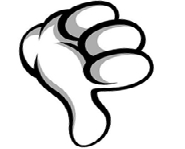Government/Policy

October 28, 2020
Congress Reps Oppose S232 Tariffs on Transformer Parts
Written by Sandy Williams
Five congressional representatives are saying “don’t do it” to a proposal to impose Section 232 tariffs on imports of transformer cores, laminates and transformers.
In a letter to Commerce Secretary Wilbur Ross, Virginia Reps. Denver Riggleman, Ben Cline, Morgan Griffith, Arkansas Rep. Bruce Westerman and North Carolina Rep. Dan Bishop said that imposition of tariffs or other restrictions on imported transformer products would put at risk 15,000 transformer industry jobs and undermine the reliable supply of low-cost electricity in the U.S.
“The principal cause of increased imports of cores, laminations and transformers, which are not unfairly traded, is the levying of Section 232 import restrictions on grain-oriented steel into the United States,” said the group. “The transformer industries have relocated operations, principally to Canada and Mexico, to preserve their own competitiveness in the market.”
The Congressmen list five negative results that will likely occur should the tariffs on transformer parts be imposed:
- Loss of jobs in the U.S. Power and Distribution Transformer industries
- Higher utility/electricity bills, which will impact all American consumers
- Threats to national security through weakening of the competitive structure of the American transformer industry
- Delays in the critical upgrade of the U.S. electrical grid, which requires procurement by American electric utilities of large numbers of transformers over a short period of time
- Deterioration of trade, defense and commercial relationships with Canada and Mexico. These relationships are the source of 85% of U.S. imports of transformer cores and laminations, whose electricity grids are physically, strategically and economically linked with the U.S. power grid.
“Against the clear risk to national economic health (and our national defense), there is no justifications for the imposition of tariffs or other trade restrictions, especially on two of our closest allies and partners in the world. Section 232 import restrictions would not remedy the operations of the sole current manufacturer of grain-oriented electrical steel in the United States and will certainly worsen the problems of downstream U.S. industries that will be affected.”
The only producer of grain-oriented electrical steel in the United States is AK Steel, now a part of Cleveland-Cliffs.







